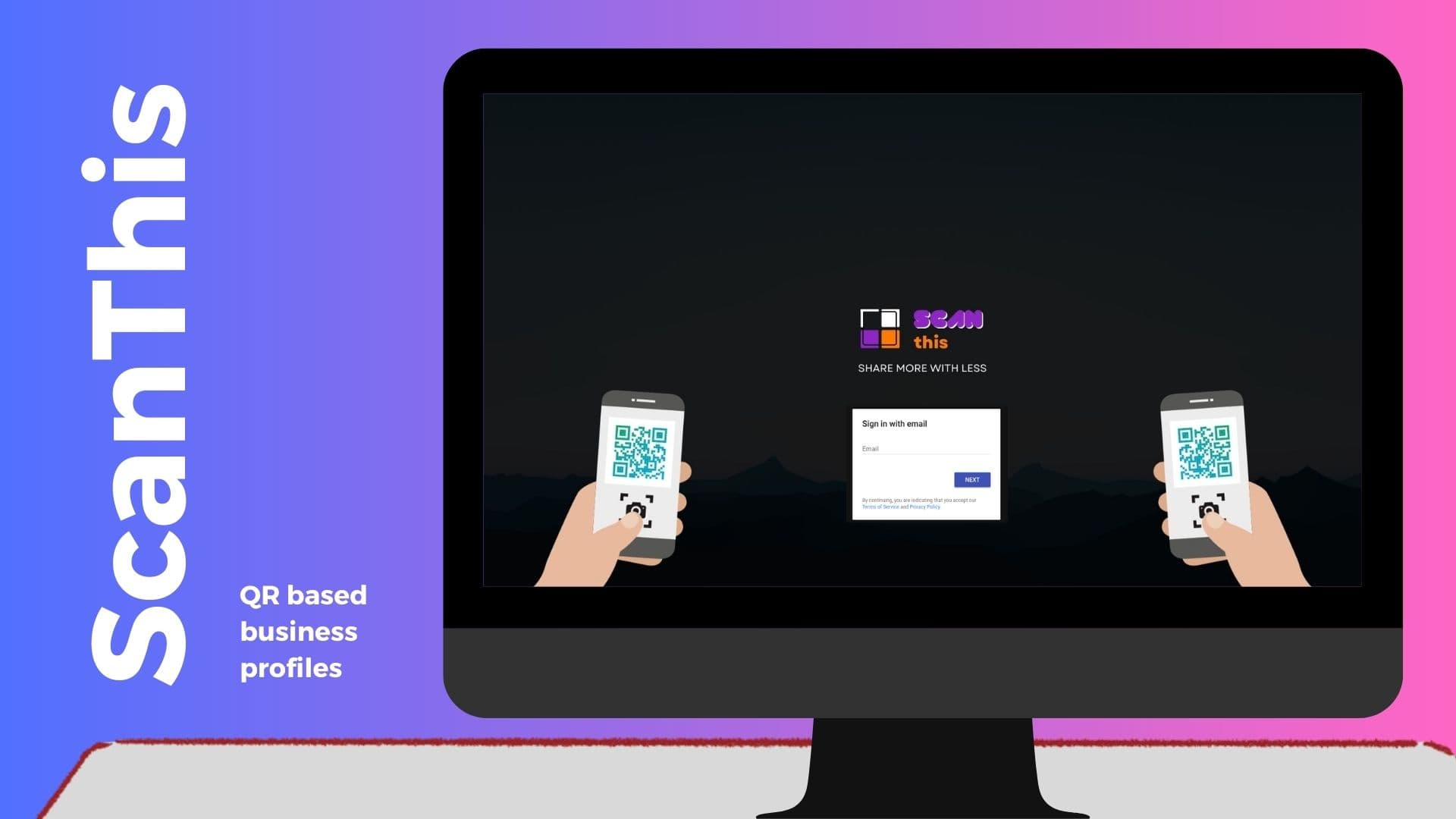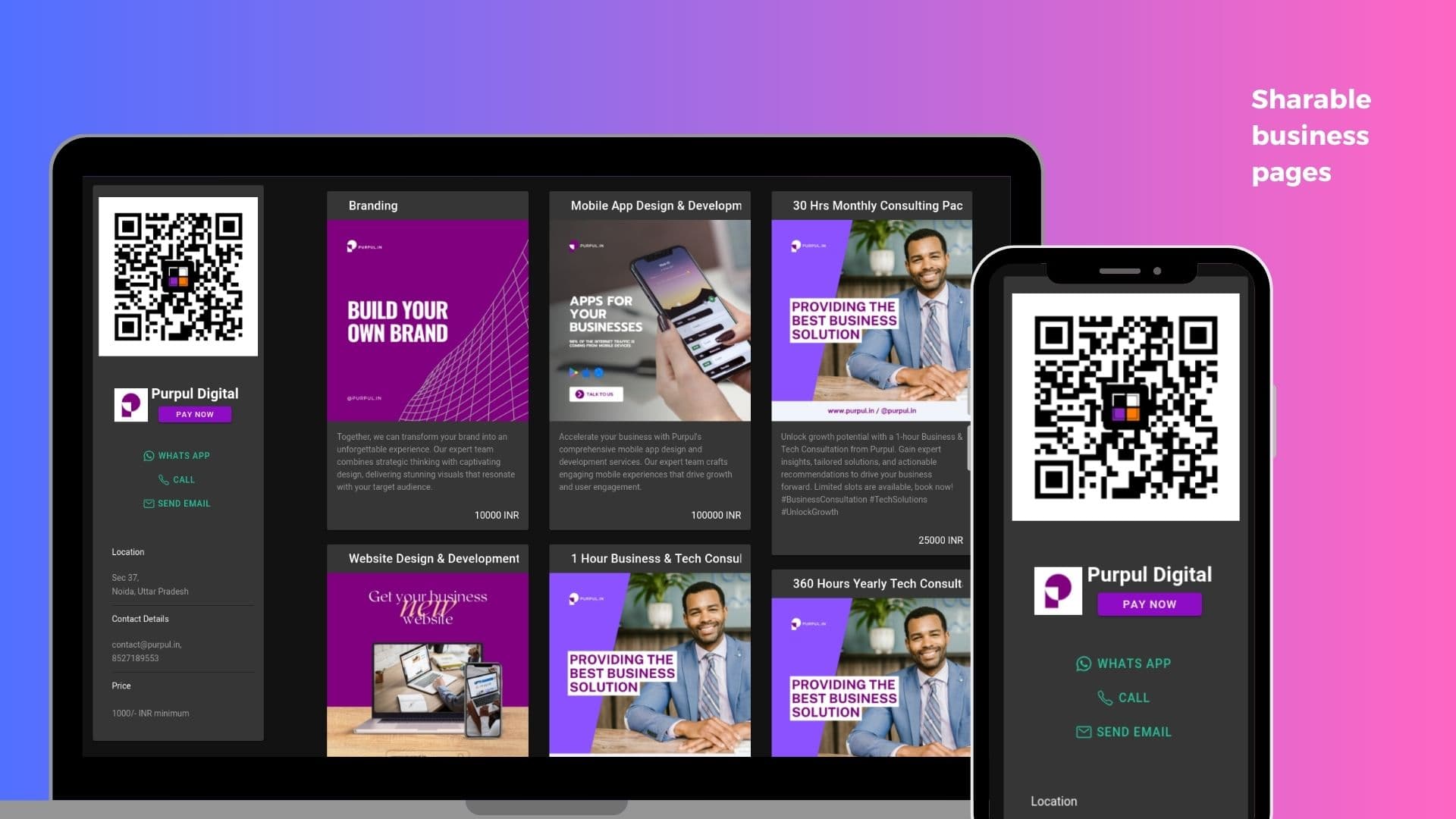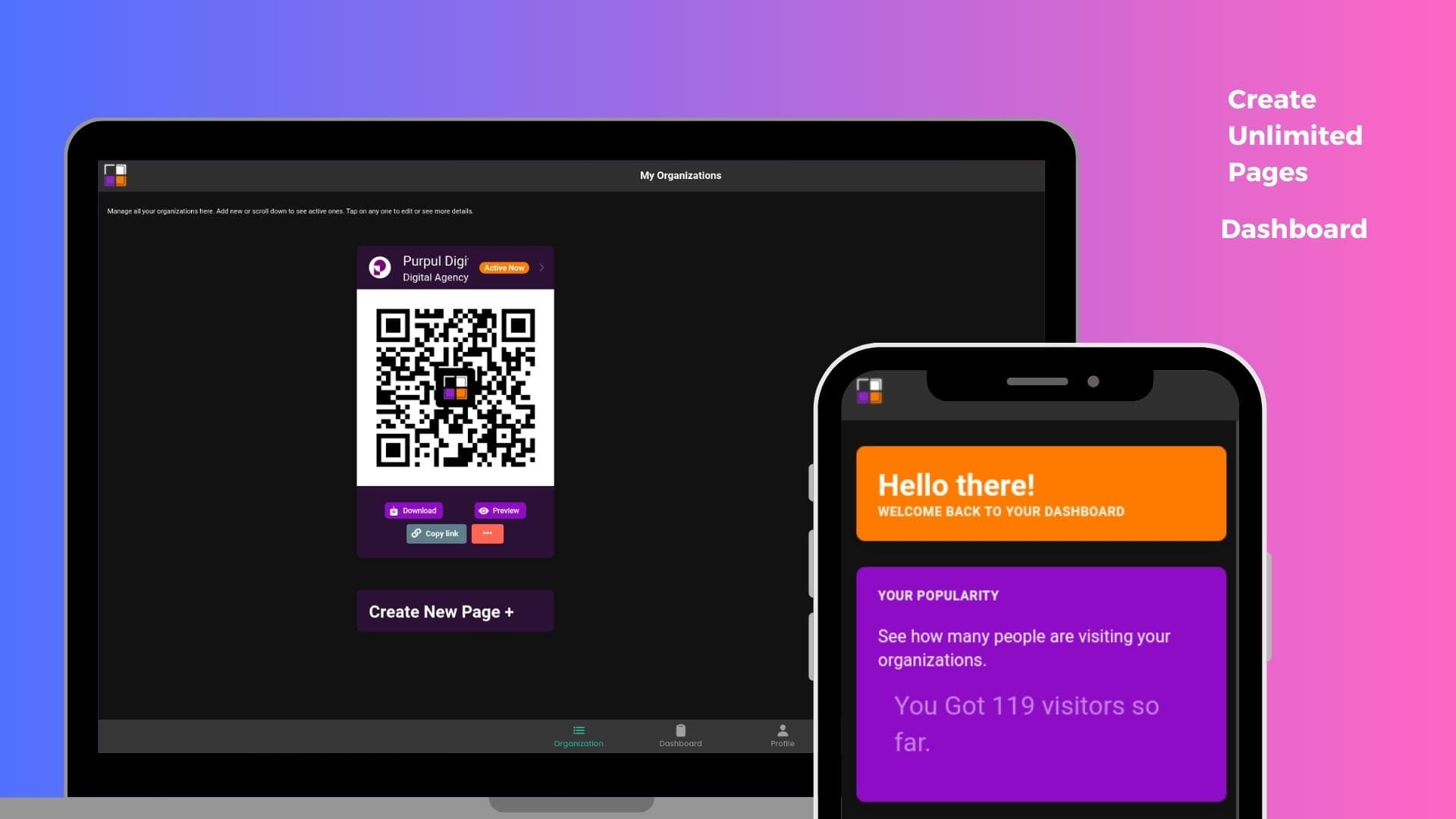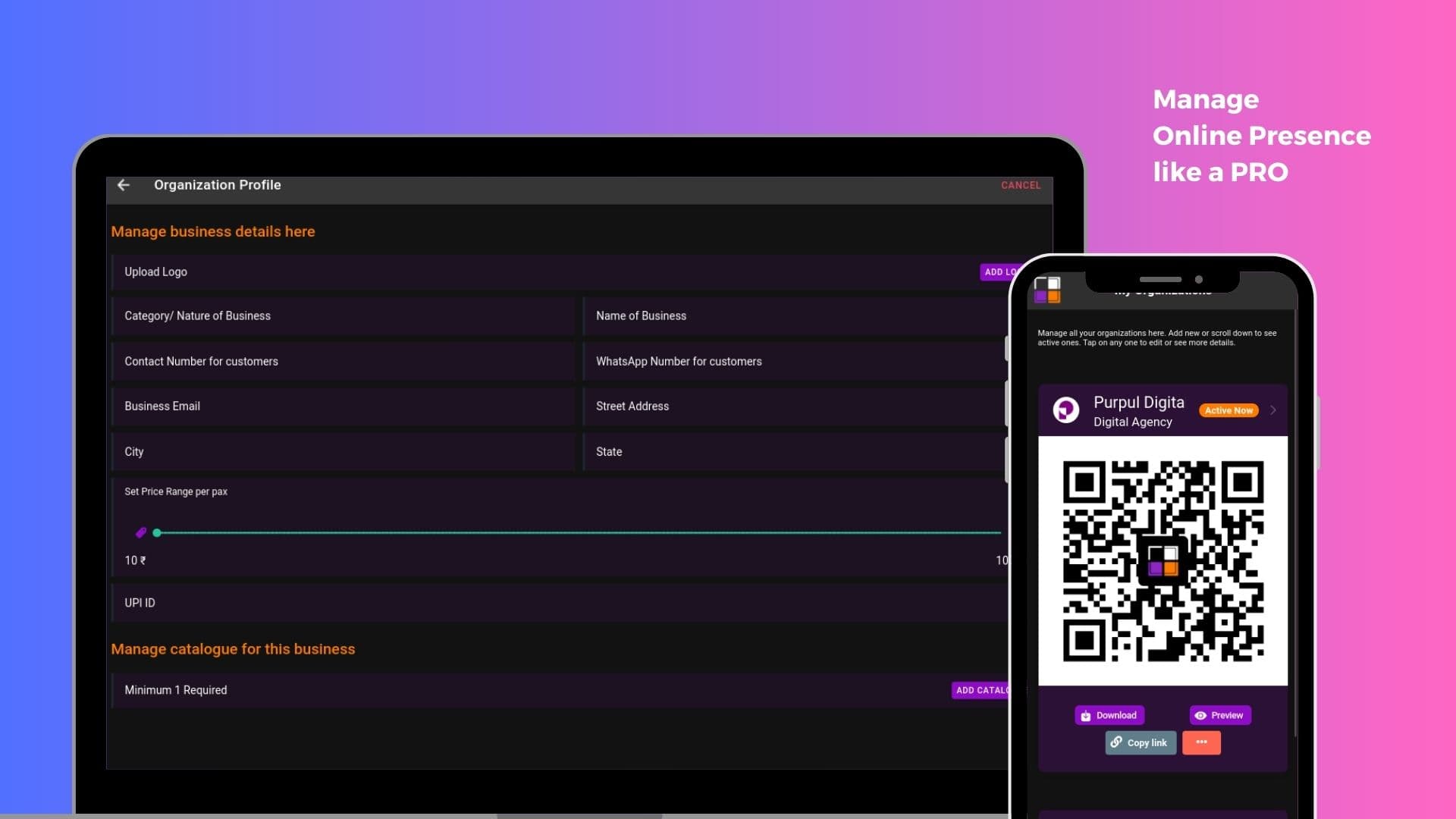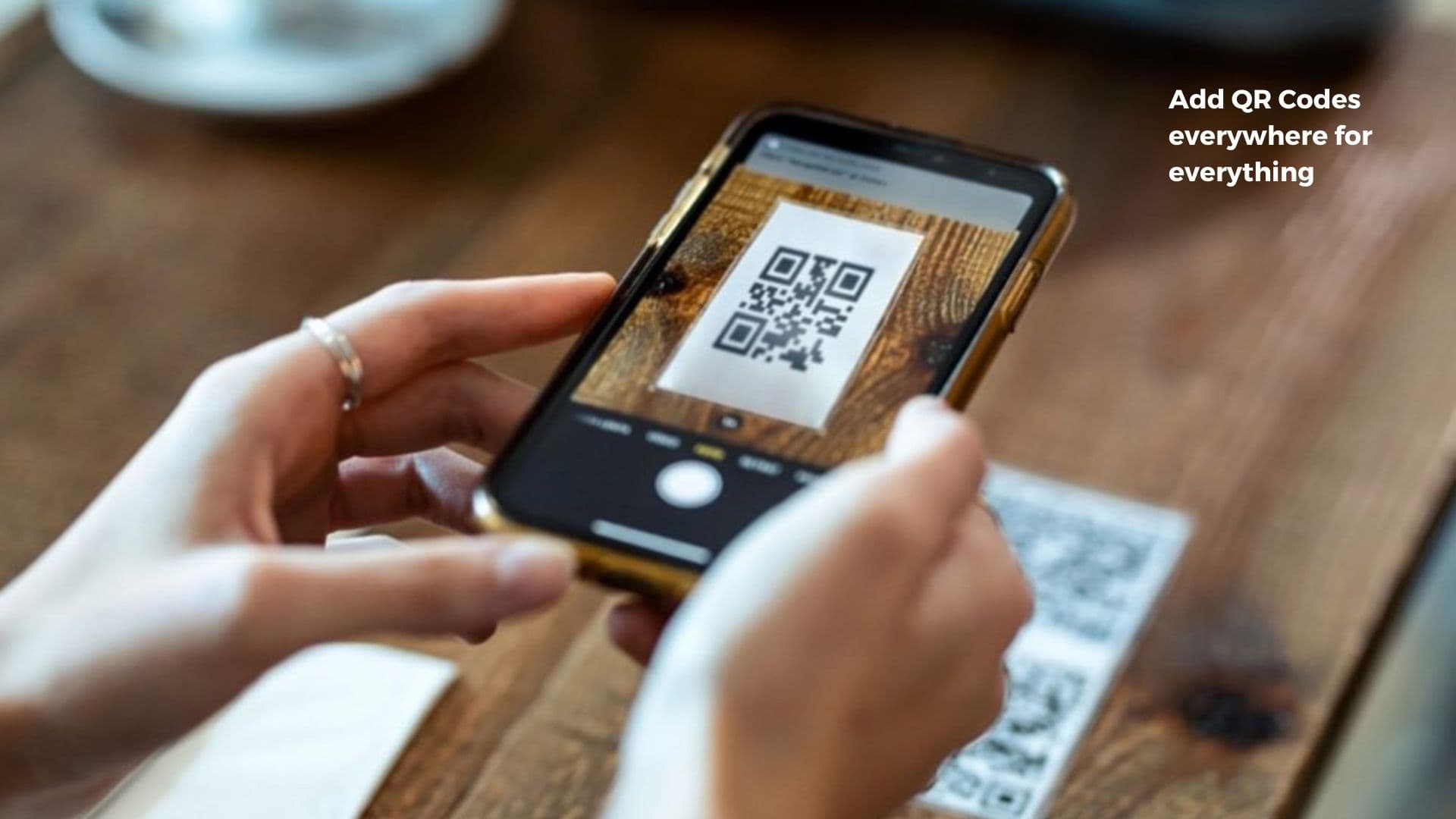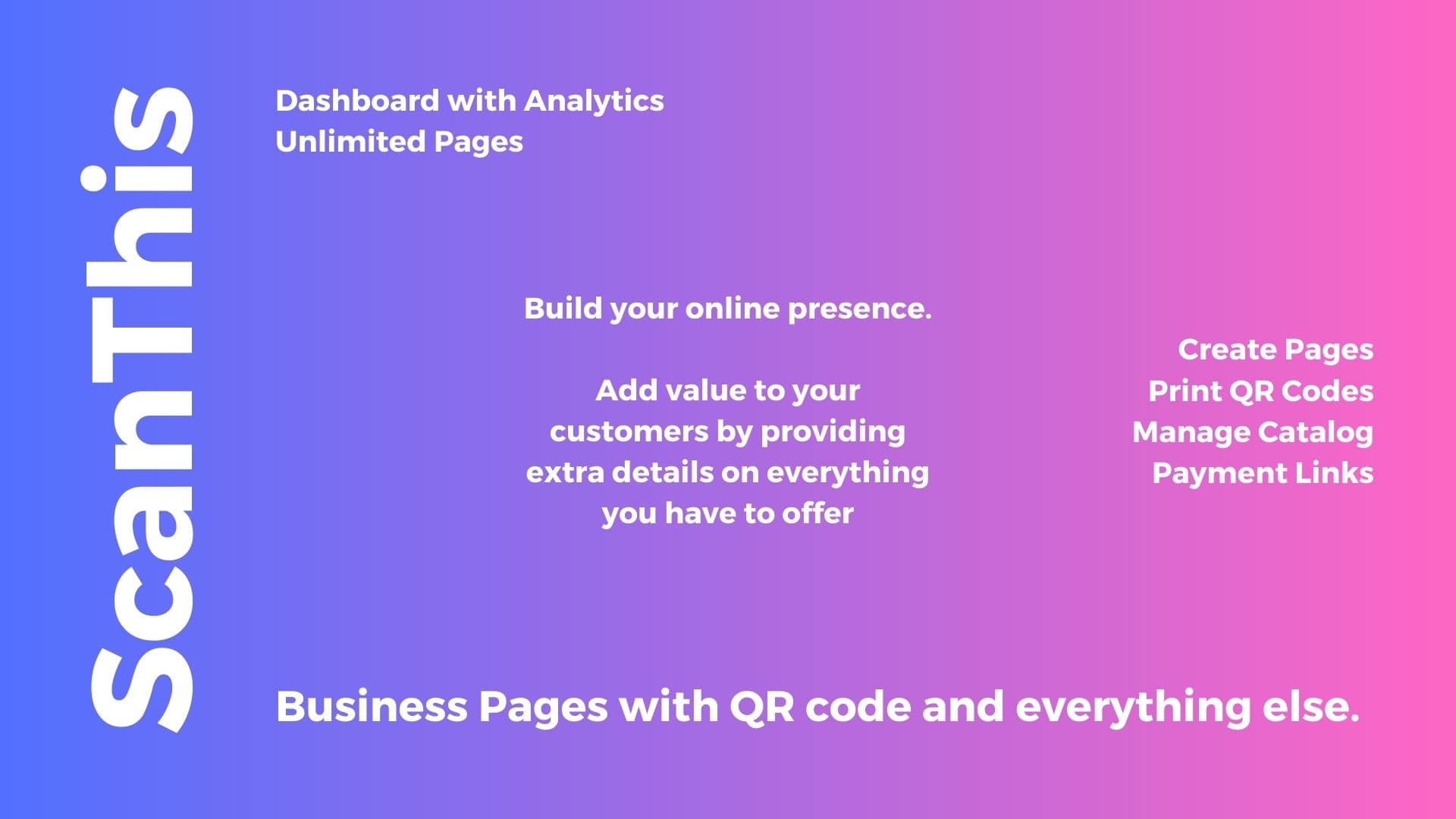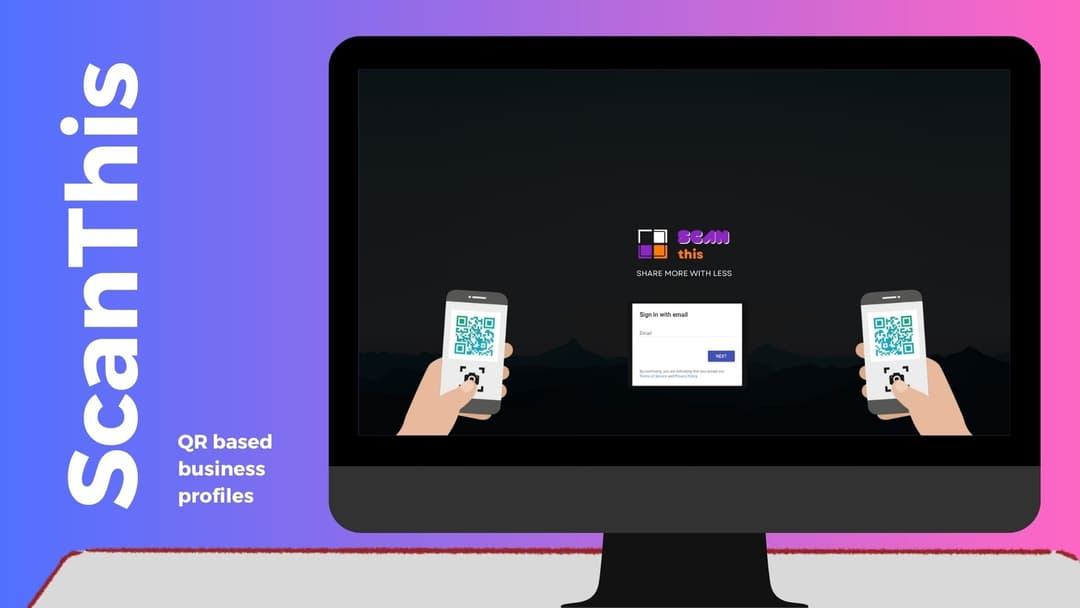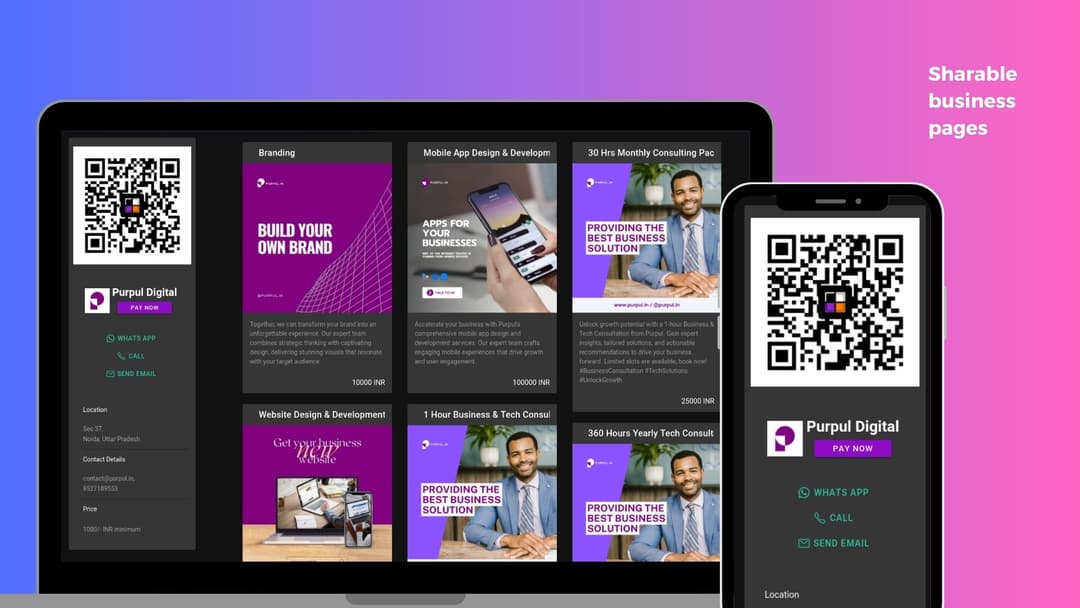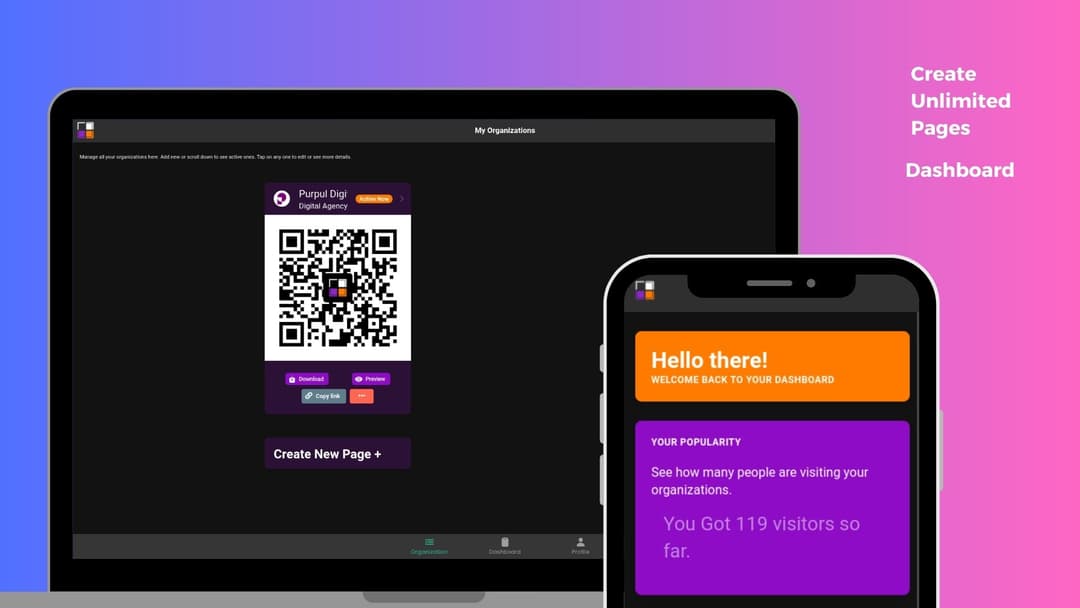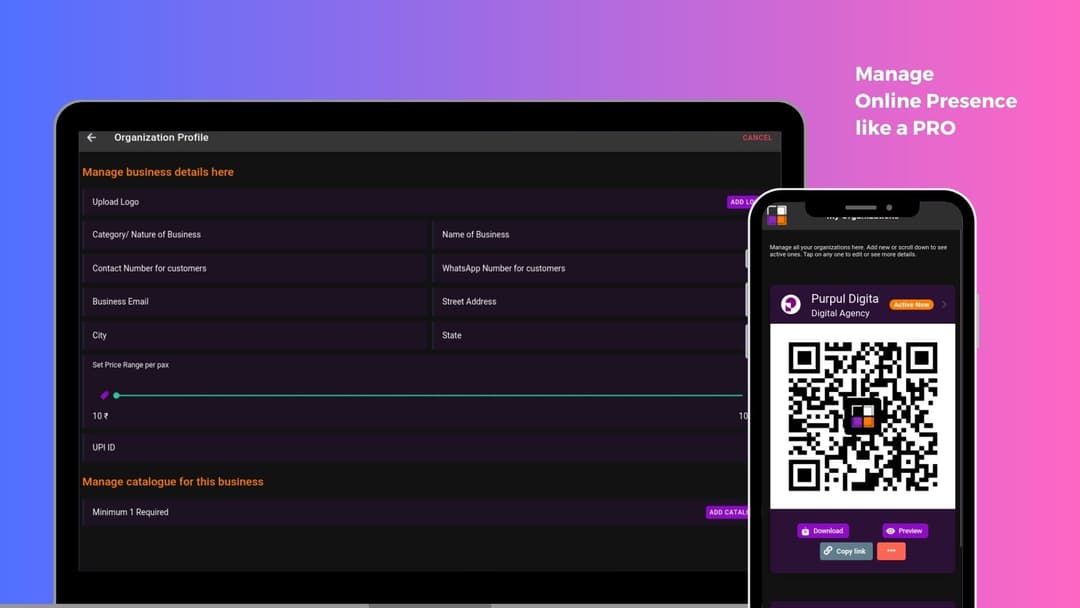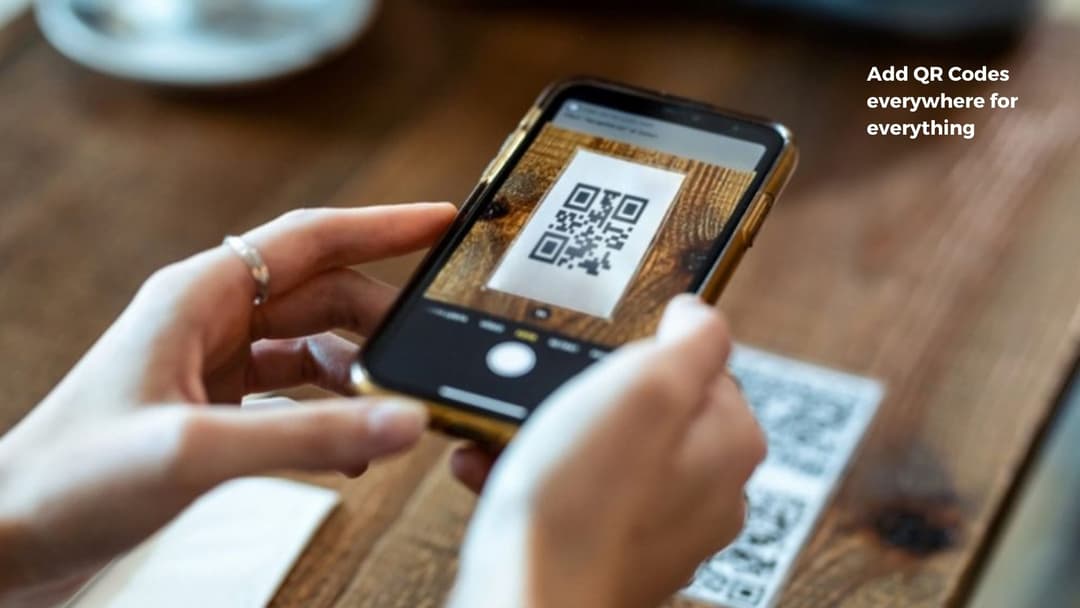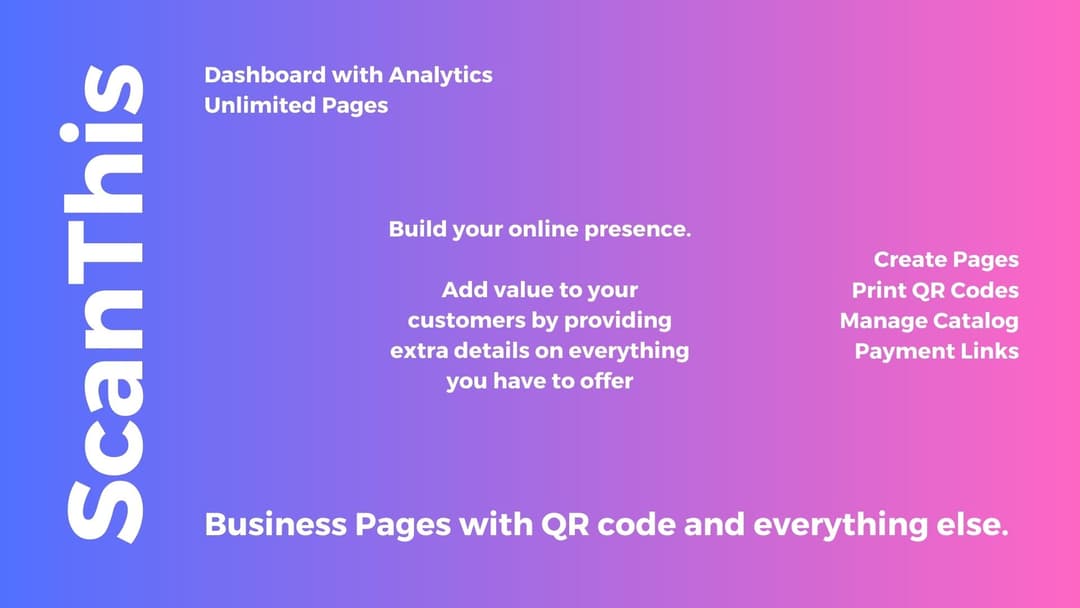Empowering Small Businesses: A Case Study of a SAAS Platform for QR Code Generation, UPI Payments, and Business Management
Introduction
In today's digital era, small businesses face numerous challenges when it comes to managing their operations and reaching a wider audience. However, a SAAS platform emerged to address these pain points and empower small businesses. This case study explores the development and impact of a SAAS platform that enables users to create business profiles, generate QR codes, collect UPI payments, and streamline their business processes.
Problem Statement
Small businesses often struggle with limited resources and technical expertise, hindering their ability to establish an online presence and efficiently manage their operations. They face challenges such as accepting digital payments, showcasing their products/services effectively, and facilitating seamless communication with customers. To overcome these obstacles, the development team set out to create an all-in-one SAAS platform.
Solution
The development team leveraged the power of Ionic, Angular, Firebase, Typescript, and other cutting-edge technologies to build a robust SAAS platform. The platform provides small businesses with the following key features:
-
Business Profiles: Users can create comprehensive business profiles, including business name, description, contact details, and social media links. This enables businesses to establish an online presence and showcase their unique value proposition.
-
QR Code Generation: The platform allows users to generate QR codes for their businesses. These QR codes can be printed and placed at physical locations, enabling customers to easily access business information by scanning the code using their smartphones. This seamless interaction enhances customer engagement and eliminates the need for manual data entry.
-
UPI Payments: The SAAS platform integrates UPI payment functionality, enabling businesses to accept digital payments securely and conveniently. Customers can make payments directly using UPI apps, eliminating the hassle of traditional payment methods and reducing friction in the transaction process.
-
Catalog Creation and Sharing: The platform facilitates the creation of visually appealing catalogs that showcase products/services with images, descriptions, and prices. Businesses can easily update and manage their catalog, providing potential customers with a comprehensive overview of available offerings. The catalogs can be shared online, enhancing discoverability and enabling potential customers to make informed purchasing decisions.
-
Communication Channels: The SAAS platform offers integrated communication channels, including calls and messages, allowing businesses to interact with customers efficiently. This fosters seamless communication, enhances customer support, and establishes a personalized connection between businesses and their clientele.
Implementation
The development team followed an agile software development methodology to build the SAAS platform. They utilized Ionic, an open-source framework for hybrid mobile app development, along with Angular, a popular TypeScript-based web application framework. Firebase, a powerful cloud-based platform, served as the backend infrastructure, providing robust features like real-time database, authentication, and hosting.
The team implemented the QR code generation feature using open-source libraries, ensuring compatibility across various smartphones and QR code scanning apps. They integrated UPI payment APIs to securely process transactions and partnered with leading UPI payment service providers to facilitate seamless payment experiences.
To create visually appealing catalogs, the team leveraged Angular's powerful templating capabilities and integrated image hosting services for efficient image management. They also implemented communication channels using WebRTC and other technologies to enable real-time calls and messages within the platform.
Impact
The SAAS platform had a transformative impact on small businesses, empowering them with the necessary tools to thrive in the digital landscape. The key impacts and benefits observed include:
-
Enhanced Online Presence: Small businesses gained a strong online presence through their business profiles, attracting new customers and expanding their reach.
-
Increased Sales and Revenue: The ability to accept UPI payments enabled businesses to tap into the growing digital payment ecosystem, resulting in increased sales and revenue.
-
Streamlined Operations: The platform's catalog creation and management features streamlined business operations, allowing businesses to efficiently update and showcase their offerings.
-
Improved Customer Engagement: By utilizing QR codes, businesses enhanced customer engagement and made it easier for customers to access their information, leading to improved customer experiences.
-
Better Communication and Support: Integrated communication channels facilitated seamless communication between businesses and customers, leading to improved customer support and satisfaction.
Conclusion
The SAAS platform developed for small businesses proved to be a game-changer, empowering them to overcome the challenges of limited resources, digital payment acceptance, and effective business management. By leveraging technologies such as Ionic, Angular, Firebase, and Typescript, the platform provided small businesses with the essential tools to establish an online presence, generate QR codes, collect UPI payments, and streamline their operations. Through enhanced online visibility, improved customer engagement, and efficient communication, the platform enabled small businesses to thrive in the digital era.
